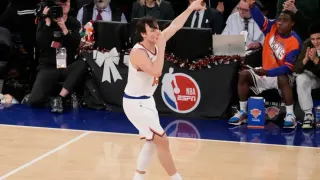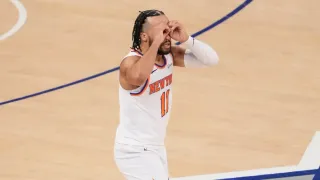June 24, 2015
Closing Arguments Expected in 'Gay Conversion' Trial
Bobby McGuire READ TIME: 2 MIN.
JERSEY CITY, N.J. -- Closing arguments are expected in the trial of a Jersey City nonprofit that was sued for claiming it could turn gays into heterosexuals.
Jews Offering New Alternatives for Healing, known by the acronym JONAH, is accused in the lawsuit of violating New Jersey's consumer fraud laws by offering so-called "gay conversion" therapy.
The trial in state Superior Court in Jersey City began in early June. Closing arguments are expected Wednesday.
One of the young men who sued in 2012 testified during the trial that one of JONAH's methods involved using a tennis racket to beat a pillow that was meant to represent his mother, who, he said counselors told him, was responsible for his homosexuality. He also spoke of being urged to spend more time naked with his father.
The co-founder of JONAH testified he believes homosexuality is a disorder caused by emotional wounds occurring in childhood and adolescence that can be cured through methods used by his organization.
The plaintiffs claim JONAH violated New Jersey consumer protection laws by making fraudulent claims and misrepresentations about what it could do. They are seeking to have JONAH's business license revoked and to be reimbursed for the therapy they paid for as well as separate counseling they underwent after leaving the program.
JONAH's attorneys have argued that none of the plaintiffs complained about their experience at the time of their treatment, and that some even recommended it to others. They insist the lawsuit was spurred by activists who are seeking to shut JONAH down.
Republican Gov. Chris Christie signed a law in 2013 banning licensed therapists from practicing conversion therapy in New Jersey. Two court challenges to the ban, one by a couple and their son and one by a group that included two licensed therapists, were dismissed by a federal judge. Those decisions were later affirmed by a federal appeals court.
JONAH's co-founder testified that he is not a licensed therapist.






